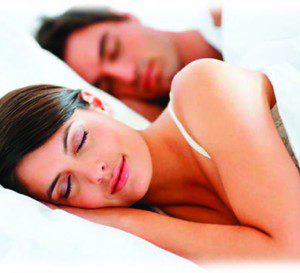By Christina Parker, ARNP Restorative Medical Center –
 Getting a good night’s sleep is essential to your health and wellbeing. At night is when our bodies rejuvenate. We have all had those sleepless nights and the next day we are either on overdrive for a couple of hours then we crash, or we are not able to get up and go at all. We feel foggy all day, headaches, and sometimes nauseous. So what happened? I certainly remember when I was a kid I could sleep until 10 am if I wanted to! There could be a serious underlying problem going on. Hormones play an important role in our immune system. Lets take a look at how:
Getting a good night’s sleep is essential to your health and wellbeing. At night is when our bodies rejuvenate. We have all had those sleepless nights and the next day we are either on overdrive for a couple of hours then we crash, or we are not able to get up and go at all. We feel foggy all day, headaches, and sometimes nauseous. So what happened? I certainly remember when I was a kid I could sleep until 10 am if I wanted to! There could be a serious underlying problem going on. Hormones play an important role in our immune system. Lets take a look at how:
Melatonin: Melatonin is one of the most important anti-cancer hormones since it is critical for Natural Killer cell surveillance of cancerous cells. Melatonin levels reach 50% of normal by the time you are in your 20’s and nearly zero by age 40. Stress depletes melatonin. Therefore, young children, teens, and young adults may have their melatonin stores depleted in times of stress. Small amounts of light between 10pm-2am reduces production of melatonin. Symptoms of low melatonin include insomnia, un-restful sleep, overactive mind at night, hot feet at night, jet lag, depression, anxiety, winter blues, and frequent illnesses. Your body makes about 20mg of melatonin every night. Melatonin can be raised by protein/carbohydrate bedtime snack, darkness, drop in body temperature as occurs after a hot bath.
Progesterone: Progesterone is a hormone for both men and women. Low progesterone causes anxiety and lighter sleep or insomnia. Progesterone stimulates GABA receptors in the brain that make you feel calmer. Low progesterone is the number one reason why men and women are prescribed anti-depressants and sleep aids. Progesterone starts to decline in women around age 30 or sooner if she has a history of birth control, infertility, excess stress, or early pregnancy.
Testosterone: Low testosterone in men can cause anxiety and insomnia. Testosterone levels start to decline in the late 30’s in men and women.
Cortisol: When acute stress leads to an elevation of cortisol, it is healthy and needed. Many of us out there have chronic stress and our inner tiger is unleashed much too often. This leads to prolonged excess levels of cortisol. We have a hard time falling asleep, staying asleep or we wake up very sudden around 3am and are wide-awake.
Thyroid: Low thyroid levels leave us feeling exhausted all day. Then at night we are too tired to fall asleep or we have sleep apnea. Low thyroid can cause sleep apnea. Many times we go to the doctor and they check our TSH hormone. This is a very indirect way to check the thyroid. The hypothalamus is supposed to sense low levels of T3 in the blood and stimulate the pituitary to release TSH to stimulate the thyroid. But what if the hypothalamus and pituitary aren’t working properly?
This isn’t uncommon. If the thyroid isn’t working, how can we expect our hypothalamus and pituitary to be working correctly? So in Functional Medicine we check the Free T3 circulating hormone instead.
Lifestyle: Avoid stimulants within 3 hours of bedtime. This includes alcohol, caffeine, smoking and Decongestants. No aerobic exercise within 3 hours of bedtime. Avoid electronics within an hour before bed. Avoid arguments at night time. Do not eat a large meal or sugar within 3 hours. Do eat a protein/carbohydrate before bed. Have your bedroom very dark, cool and quiet. Take a hot bath with Dead Sea Salts or Epsom salts and a little lavender. Go to bed at the same time every night.
Restorative Medical Center
941-625-0304
www.restorativemedicalcenter.com









